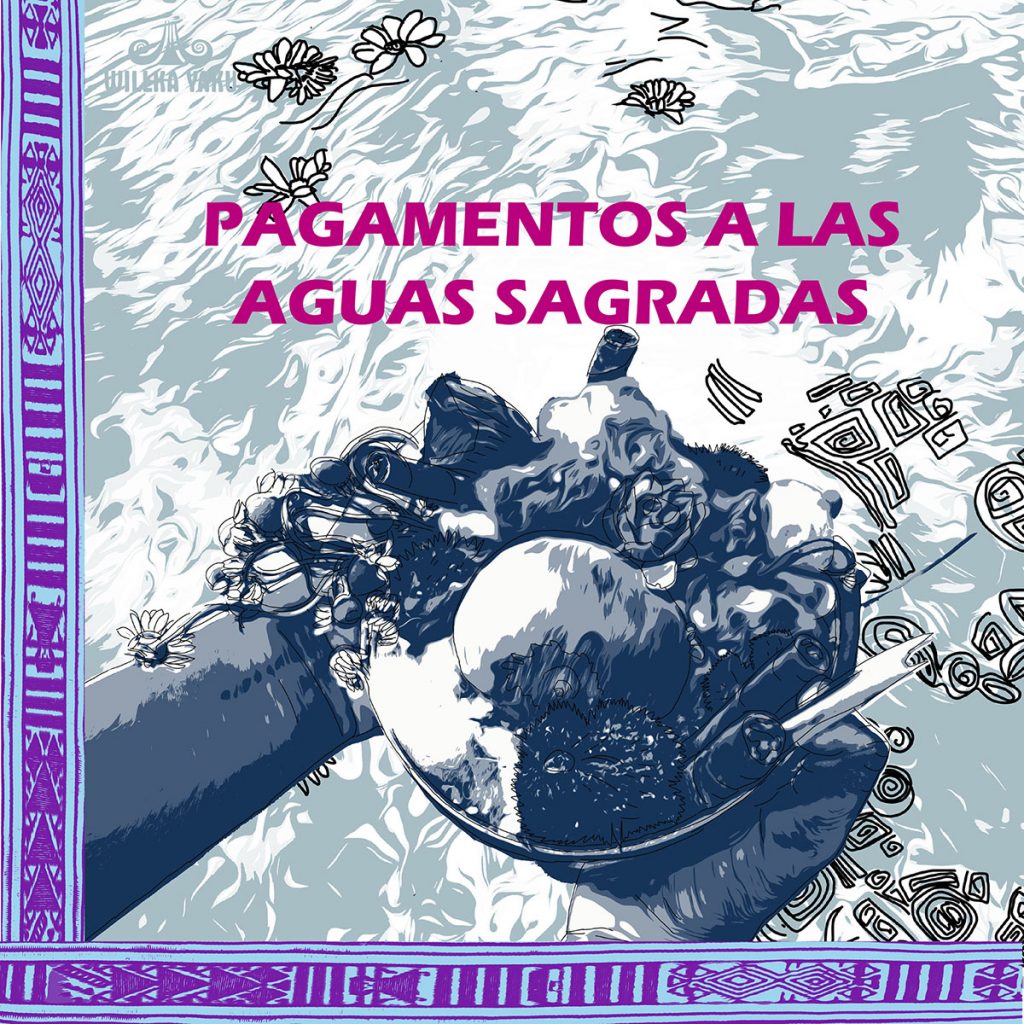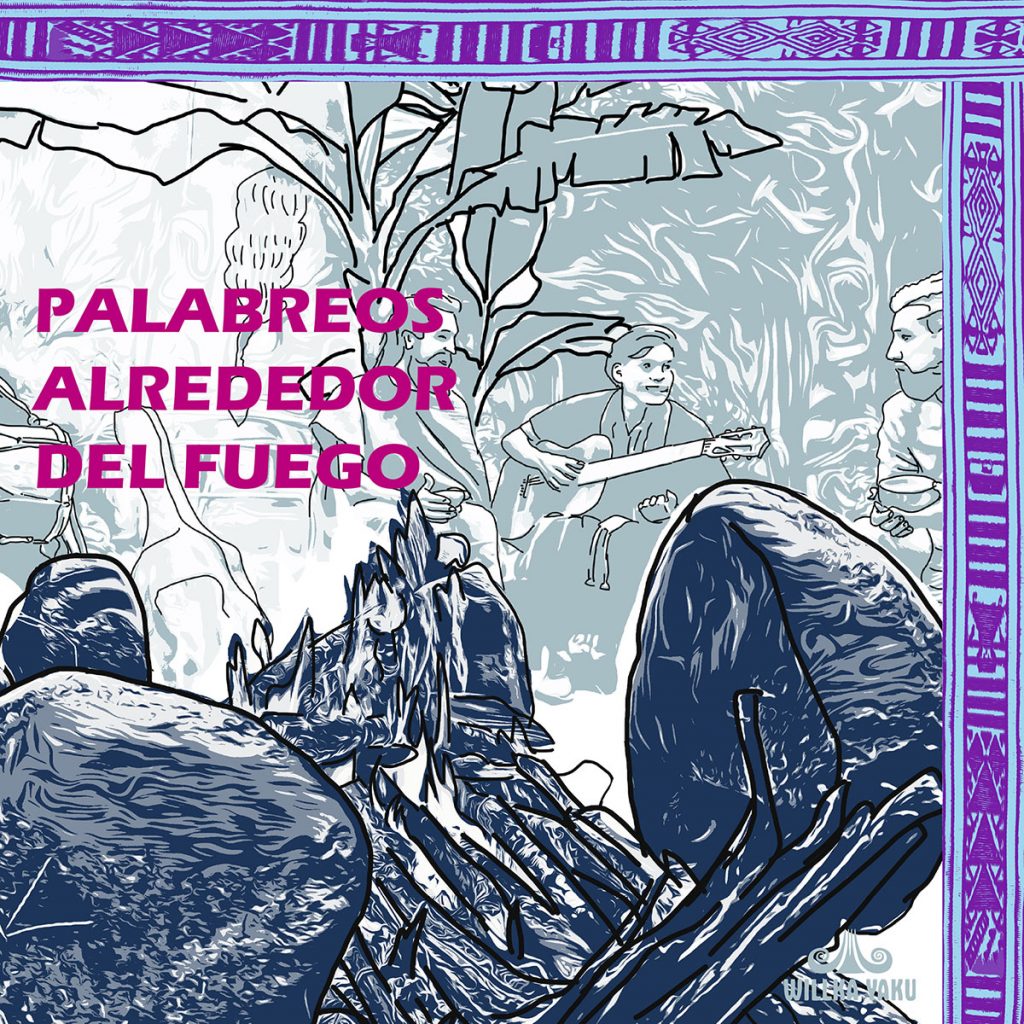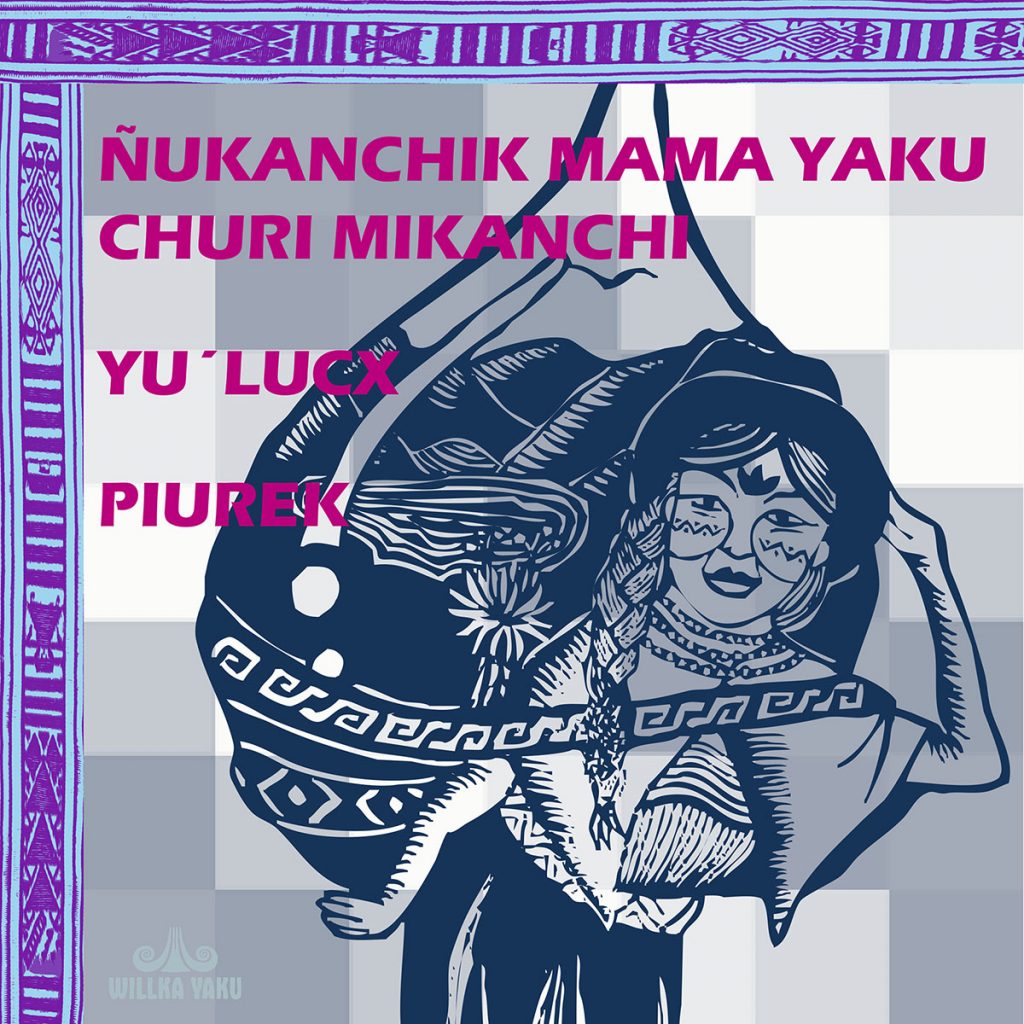Twelve years of the Wilka Yaku Ancestral Council. From a Warmi Pachakuty vision
by: Eyder Fabio Calambás Tróchez Phuyu Uma
Colombia
by: Eyder Fabio Calambás Tróchez Phuyu Uma
ColombiaTranslated by Lola Malavasi
Ñukanchik Mama Yaku churi mikanchi, Piurek y Yu’lucx
In Runasimi for the Yanakuna people, in Namtrik for the Misak and in
Nasayuwe spoken by the Nasa, the mandate: we are the sons and daughters of water.
Yanakuna, Misak and Nasa thinking.
From the perspective of the spiritual guides, the Primera Carrera Ceremonial Andina en Unión por el Agua (First Andean Ceremonial Race in Union for Water), 2011, was the proper pedagogy for us to place the territory within our bodies through the journeys along the Yuma River. In their words: “We cannot love what we do not know, and we cannot fight for the territory we have not traveled.” Thus, water ceased to be conceived as a resource and reminded us that it is someone. From being “natural wealth,” we now understand it as a greater spirit, a primordial advisor that guides the right way to live, to make life, to be here, being life. We are not a human union to defend water, we are not inventing a new Minga as an invitation to be conscious. Instead, we attend water’s Minga, to live out its mandate. It commands because it is a grandmother. Grandmother in all the Andes. She has become the referent for life’s daily actions, the cultural way of life of the native peoples, ceasing to be the topic of worrying conversations.

Our path is told here through these illustrations. Through the Race of Water, the Pagamento, the Palabreo, and the Mandate of Grandmother Water. Together, they are the weft that our elders of the native peoples of Cauca have woven and weave. They are the route of our decoloniality. Since that time, walking along the river, from its source to its mouth in Bocas de Ceniza, was a short session of three months, in comparison to twelve years of infinite teachings between the moor and the seas, to all the major words that travel “down,” that carry in their current hundreds of names of grandmothers and grandfathers of all the times and geographies of the Andes; offerings of minerals, flowers, corn, and panela, our gratitude returned to the water for the cycle of life and the fertility of the earth. Before, it was gold and silver that the ancestral peoples sowed to guarantee the harmony of the planet, territories worthy of their heirs. In other words, this is the greatest teaching of ancestral justice given the times to come.


References to learn more
Ala Kusrei Ya Misak Universidad. Caminando desde Guambia el territorio Puben. Radio documentary, podcast, 2020.
Ala Kusrei Ya Misak University. Caminando la memoria. Animation. Iwgia 2021
Ala Kusrei Ya Misak University. PiWamMera las voces del agua. Documentary. Iwgia 2023
Eyder Calambás. Definiciones inexactas para una ecología implícita. Unicauca 2018
Eyder Calambás. Memorias del fuego. Definiciones inexactas, para una posible estética de la liberación. Idartes 2019
Eyder Calambás. El origen popular y territorial de la creatividad. Las artes nacen en el territorio, las aprenden las comunidades y se oficializan por los artistas. Art criticism prize, Mincultura 2022
Consejo Ancestral Willka Yaku. Documentation and archive, Primera carrera ceremonial andina en unión por el agua. 2011-2023
Consejo Ancestral Willka Yaku. Memorias de la abuela agua. Documentary short. Idartes 2020
Consejo Ancestral Willka Yaku. Mandatos de la abuela agua, linocuts and typography. Idartes 2020
Consejo Ancestral Willka Yaku. Mandatos sonoros de los pueblos originarios del Cauca para la protección del río Yuma. Series of podcasts. Mincultura 2021
Consejo Ancestral Willka Yaku. Luchar como mayora, la vigente de la mujer indígena Yanakuna y Misak, Documentary. Mincultura 2022